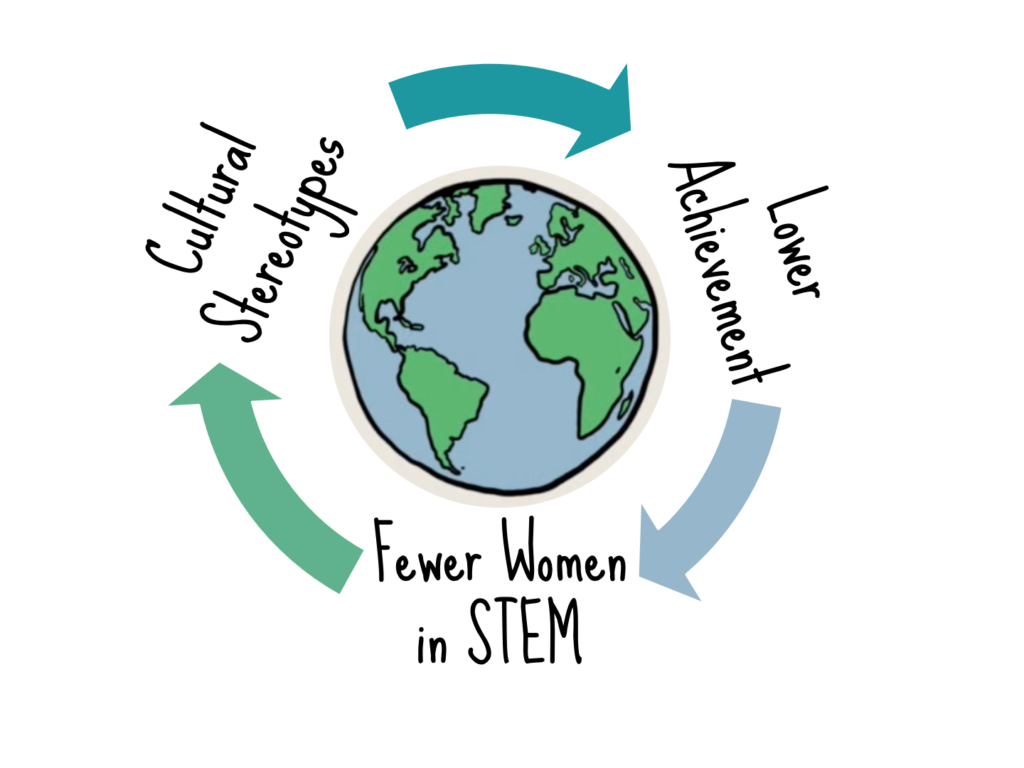
But the effects don’t end there. A subsequent study looked at more than half a million people from countries across the globe. It suggests that how adults and children think about science and math may initiate a vicious cycle.
For example, young girls demonstrate a strong stereotype that math is for boys in countries where girls have lower math achievement nationwide. Researchers think that this lower achievement further reinforces the broader cultural stereotype that ‘math is not for girls.’ This in turn makes it easier for girls to develop negative thoughts and feelings about their own math abilities.
Research shows that across many different cultures, boys and girls, women and men, are all more likely to associate science and math with boys and men. In addition, gender-based disparities and inequities in access to high-paying STEM fields have a particularly strong effect on shaping the stereotypes and expectations held by girls and women.
-
- Academic sense of self
- how a person thinks of themself as a student
- Bias
- the belief that some people or ideas are better than others, usually resulting in unfair treatment
- BIPOC
- Black, Indigenous, people of color
- Conscious
- thoughts or feelings that we are aware of
- Growth mindset
- the belief that, with effort, you can learn and achieve new things.
- In-group preference
- the tendency to form close relationships with others in a person’s same groups
- Self-esteem
- a cluster of characteristics, such as feeling confident, having pride in oneself, and a sense of self-worth
- Sense of self
- how a person thinks and feels about their self
- Stereotype
- a widespread belief that a person must have a trait because they belong to a particular group
- Unconscious
- thoughts or feelings that we are unaware of